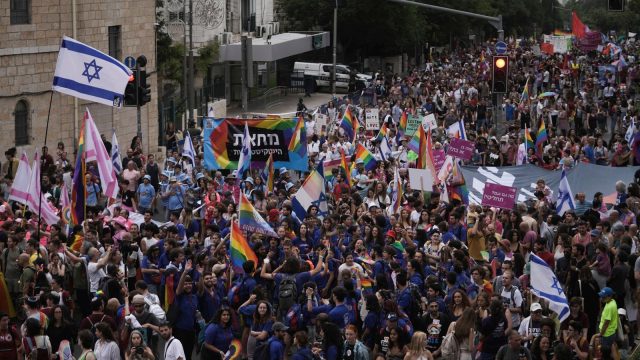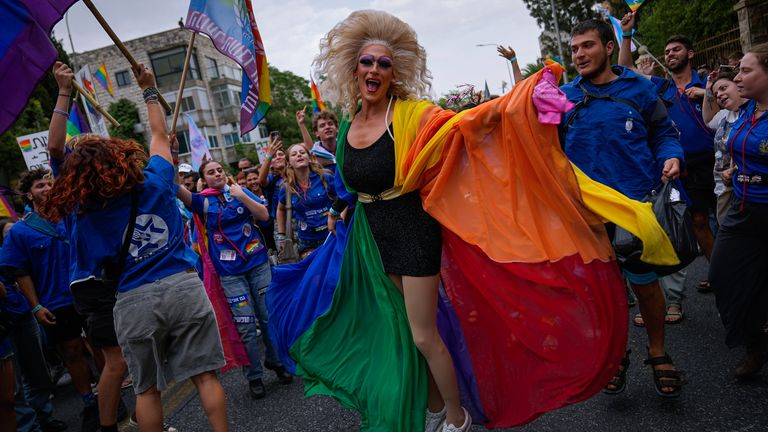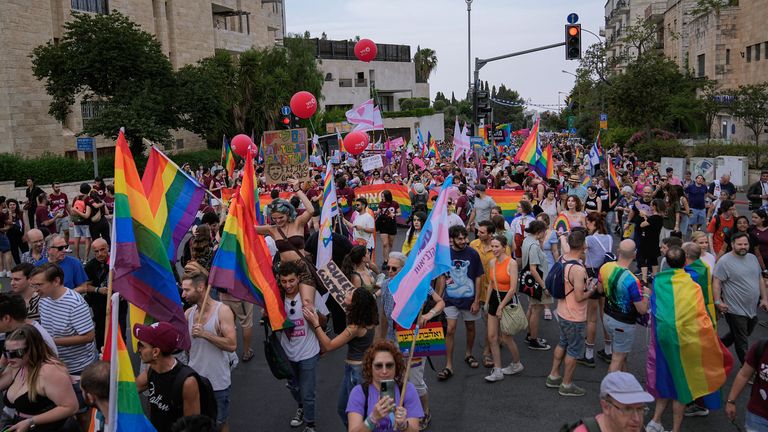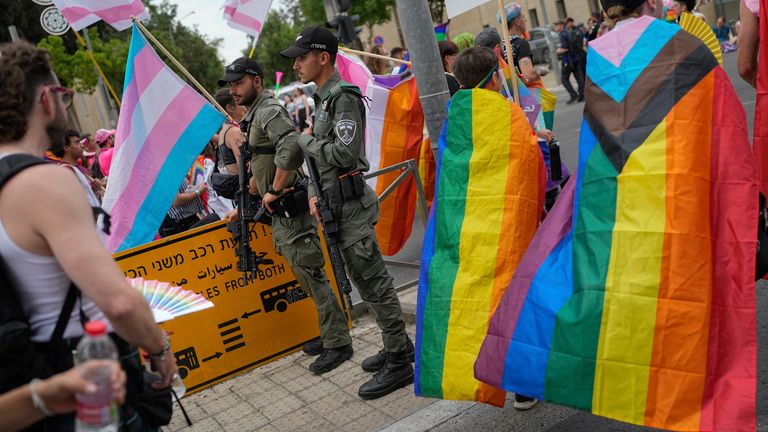Thousands joined a pride parade in Jerusalem for the first time under the country’s new right-wing government, to celebrate love in all forms and to fight for human rights.
On Thursday, people gathered to march on the streets of the conservative city, surrounded by security and by police.
As the political divide grows in the country, Israel has found itself in a tug of war between those who want to preserve Israel’s liberal values and those who seek to shift it towards a more religious conservatism.
Jerusalem’s march is typically more subdued than the one in Tel Aviv, where tens of thousands of Pride supporters often pour onto the streets for a significant celebration.
But the parade in Jerusalem drew large crowds in a show of force against the government and its plan to reshape the legal system.
‘This is about the rights and human rights’
Addressing the crowd in a speech, opposition leader Yair Lapid said: “There isn’t one struggle in Israel for democracy, and another one for LGBTQ+ rights.
“It’s the same struggle, against the same enemies, in the name of the same values.”
Tom Nides, the US ambassador to Israel, who also joined Thursday’s march, said he did not find the parade to be “controversial.”
He added: “I don’t find this controversial one way or the other.
“This is about the rights and human rights, and this is what brings America and Israel together.”
Here’s what you need to know about the Israeli government and LGBTQ rights
Prime Minister Benjamin Netanyahu’s government is made up of ultranationalist and ultra-religious parties who openly oppose homosexuality.
In the past, Finance Minister Bezalel Smotrich has said he was a “proud homophobe.”
National Security Minister Itamar Ben-Gvir, was a fixture at Pride parades, joining a group of protesters who opposed the march.
Avi Maoz, a deputy minister with authorities over some educational content, has said he wanted the legality of the Jerusalem Pride parade examined.
On Wednesday, Mr Ben-Gvir said there would be a “massive” police presence guarding those that were marching in the parade and emphasised that he supported the freedom of expression, despite his previous views.
“It will be the police’s duty to protect, guard and ensure that even if the minister disagrees with the parade, the safety of the marchers is above all else,” Mr Ben-Gvir added.
Israeli police said more than 2,000 officers were deployed along the parade route.
However, many people were not pleased with Mr Ben-Gvir and chanted “shame” to him as he walked on the sidelines for what he said was a visit to monitor security.
Read more from Sky News:
Target removes LGBTQ products after customer backlash
LGBTQ flag burned at school before Pride event in California
Israel is generally tolerant toward the LGBTQ+ community. This is considered rare in the Middle East – where homosexuality is widely considered taboo and is outlawed in some places.
Members of the LGBTQ+ community serve openly in Israel’s military and parliament, and many popular artists and entertainers are openly gay.
However, activists say there is a long road toward full equality.











![“I made Shatta Wale who he is today” – Singer Kay Smooth alleges [Video]](https://ghananewss.com/storage/2023/04/Kay-Smooth-Shatta-Wale-100x75.jpeg)

![Mr Logic’s Red Panther record label officially signs two Afro-dancehall artistes[Video]](https://ghananewss.com/storage/2023/05/Mr-Logic-signs--100x75.jpeg)






